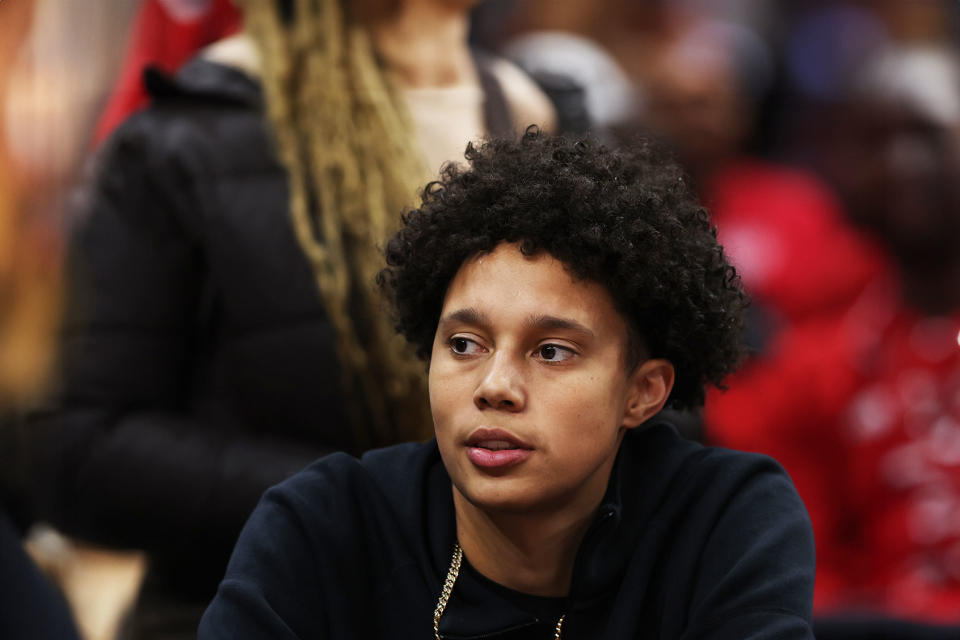Brittney Griner says she contemplated suicide, recalling experience in Russian prisons

For years, Brittney Griner was WNBA's most high-profile athlete, known for her 6-foot-9 nine stature, her 7-foot wingspan and her NCAA record-breaking slam dunks. She was even the first openly gay athlete to be endorsed by Nike. But in 2022, the basketball player's life was catapulted to the international stage.
Griner, who played basketball in Russia during her off-season from the WNBA, was detained in a Russian airport after a cannabis vape cartridge was found in her belongings. The athlete was sentenced to nine years in a Russian penal colony after being found guilty of drug smuggling and possession charges.
In a New York Times profile published on Thursday, Griner recalled the events surrounding her arrest, subsequent nine-year prison sentence and eventual release in a high-profile prisoner swap at the center of a bitter, contentious rivalry between President Joe Biden and Russian President Vladimir Putin.
Griner detailed that when Russian authorities detained her in February 2022, she was immediately held in a cell that she said had a feces-stained hole where she would use the bathroom. She had no way of cleaning herself so she ripped T-shirts into sections to keep her body clean. “I’ve never been so dirty in my life,” she told the NYTimes. The dehumanizing treatment would lead her to suicide ideation.
The treatment in prison led Griner to feel "horrible." She recalled that guards would stare at her body and question her gender. And any time that she was transported to a doctor or a court appointment, she was forced to be in a cage way too small for her nearly 7-foot stature. The profile wrote that Griner once "felt like a dog on a leash." She was even forced to undress and be photographed nude by doctors.
In July 2022, when Griner was sentenced to her nine-year prison sentence, she was transferred to a repurposed Soviet-era gulag in Mordovia in October. She said inmates referred to the region as “the ass of Russia.” Fully integrated into prison life, Griner said she was "tired of waiting for the day. It’s easier to just accept the situation I’m in. I’m an inmate.” It's here where Griner cut off her locs. To her, it felt like the only sense of agency and empowerment she had during her imprisonment.
“The cut was horrible,” she told the Times reporter, “but it wasn’t as bad as it could have been minus the bars on the window. I was like, I kind of felt like I was in an actual shop right now. At least I can get away in here, a little bit.”
After appealing to Biden through a letter, Griner said her biggest advocates for release were actually Black women. Eventually, in December, a guard slipped the athlete a note, telling her that she was going home. The next day she flew to Abu Dhabi and met with an American envoy for hostage affairs in the State Department. Griner was going to be freed. Griner was exchanged for Viktor Bout, a Russian arms dealer in a prisoner swap. They shook hands, and he told her congratulations.
Following Griner's release, she said she began experiencing symptoms of PTSD. However, from therapy, she learned that there is no “before” anymore. Last year, the WNBA star had a shaky season playing for her team the Phoenix Mercury but she's back on a regimented training cycle and will be traveling to Paris to play basketball in the Olympics this summer.

